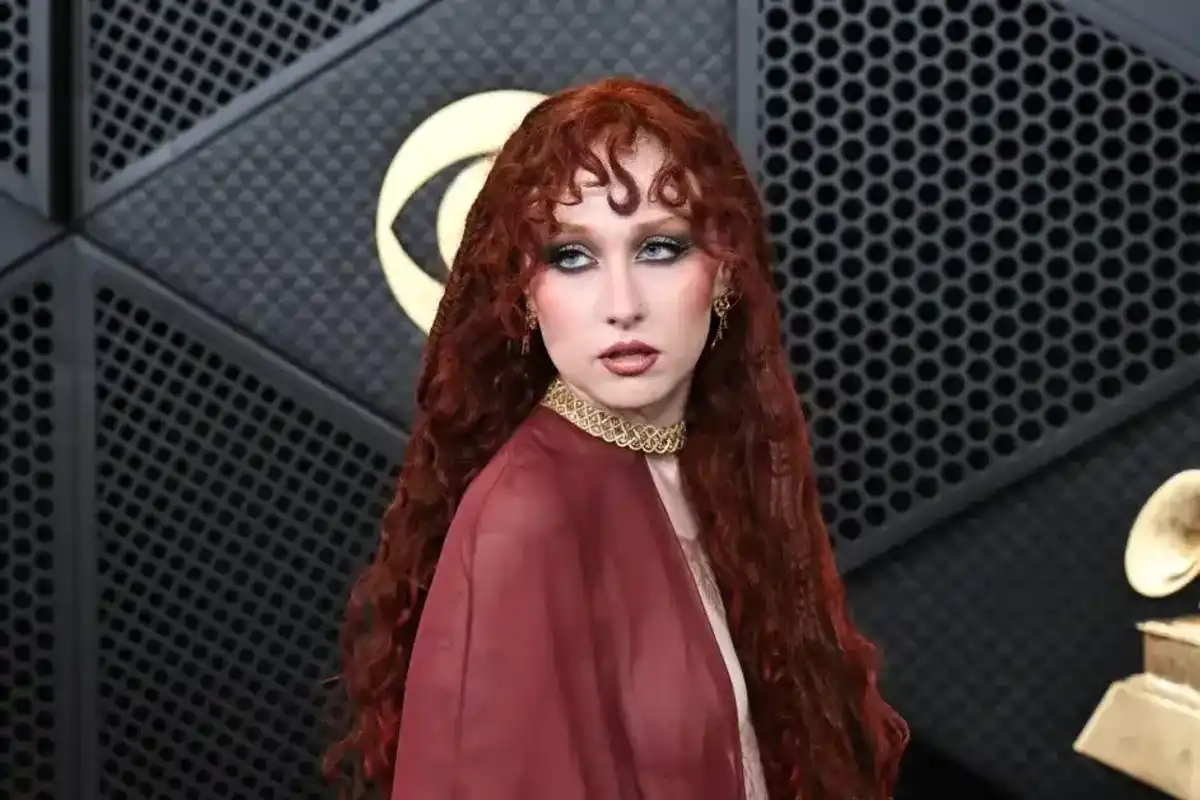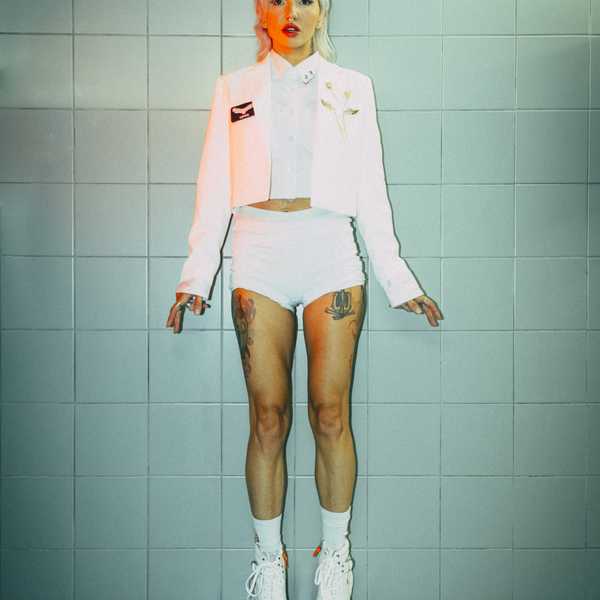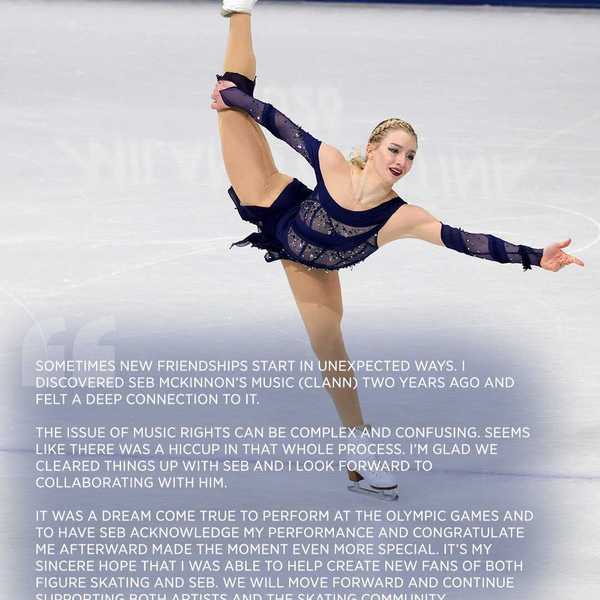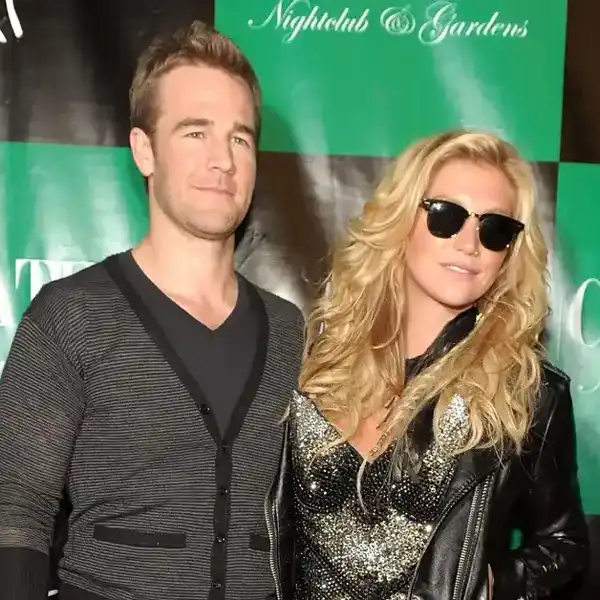Roy Hargrove – Summer 1992
From the archives comes this revealing interview with the great jazz trumpeter, composer, and bandleader who passed away last year. Photo: Bill King
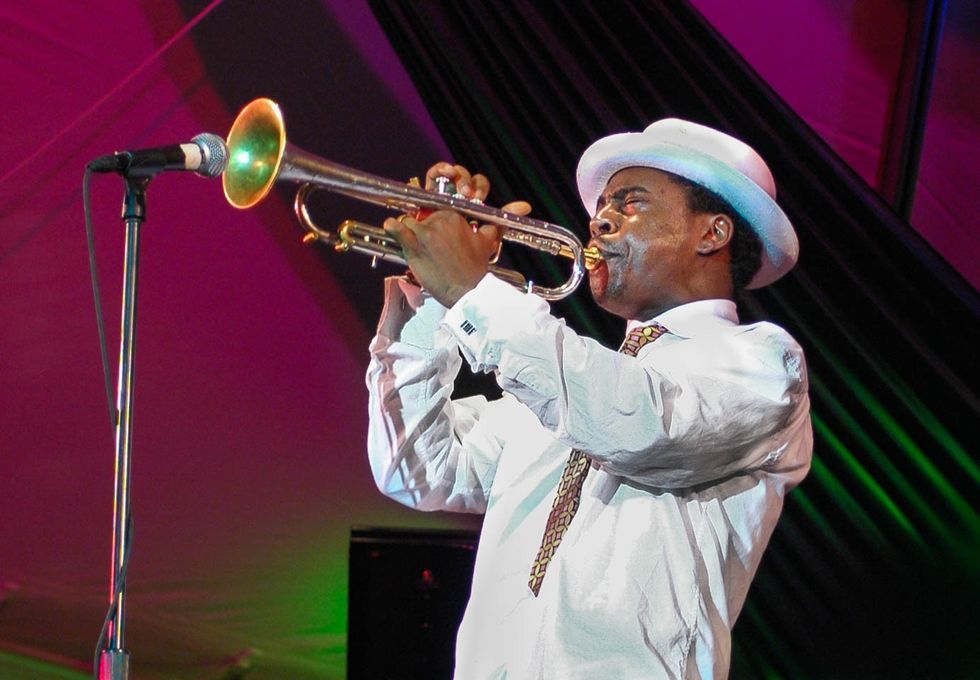
By Bill King
I can’t think of an artist of Roy Hargrove’s generation having a greater impact on jazz. I can honestly say I’ve witnessed Hargrove in live performance more than any artist since first meeting the young 23-year-old at the du Maurier Downtown Jazz Festival in Yorkville back in 1992.
I was hanging with jazz photographer Paul Hoeffler, and he was trying to get that ‘say something’ photo of Hargrove but wasn’t having much luck. It was mid-afternoon and soundcheck. Once done, Hargrove takes a seat in the patron’s gallery with trumpet in hand. Paul walks over and hands Hargrove a few postcards with Mingus, Billie Holiday and Oscar Peterson from his collection. Hargrove reluctantly agrees to a few minutes of photo time. Paul smiles, shakes his hand then departs. Paul then says, “why don’t you interview and photograph him while he’s at ease?” I almost swallowed my camera yet approached and asked. Hargrove, without changing facial expression, agrees. The photos came quick, the conversation at its own pace. What came from those moments was most revealing of a young artist on the front end of an amazing career.
I can’t count the number of occasions and situations I’ve pointed a camera at Hargrove. He was always changing musically and stylistically. We also knew he was receiving daily dialysis and the toll it was taking on him. When Roy left this planet, it was apparent we lost another Miles, Max, Bud, and Charlie – a true giant. Hargrove passed away on November 2, 2018.
Bill King: You were cast in the role of leader early in your career. Have the additional responsibilities put more pressure on you?
Roy Hargrove: Definitely. I make sure I keep that responsibility and the additional pressures in perspective. You have to pay attention to what each band member is dealing with. You have to make sure it all works together. As a unit, everybody has similarities, but I make sure there’s enough contrast to work as an ensemble.
B.K: Are you able to hold onto players or attract musicians best suited for your music?
R.H: Recently, I’ve changed the rhythm sections. I think this is the band that’s going to work. The one I had with Antonio Hart, Stephen Scott, and Christian McBride was more of a group of people who did their own thing. With the new band, I have more of a group sound. You need to have the right guys who want to play and develop a group sound.
B.K: What’s a rehearsal session like?
R.H: If we’ve played a week, we go over tunes we’ve played before. Most of the time rehearsals are called so we can bring in new music. Everybody contributes.
B.K: Are there compositions that don’t make it to your live repertoire that still end up on the record?
R.H: It’s just a matter of time. If we don’t play it now, we may include it later. We have to develop certain tunes. We learn a set of tunes and play them on the road. Once they’re down, we move on. We haven’t been working with this unit long enough for me to tell exactly how we’re going to develop that end of it.
B.K: How much input does your supporting cast have in arranging the material?
R.H: If you have a tune, you submit it. Depending on how the song is, we may learn it by ear. We add all the colours to it as we play. I may bring in a tune, but we might not end up playing it the way I wrote it. We may get into something totally different than what I had intended because of someone else’s input.
B.K: You’ve made some guest recording appearances with Sonny Rollins and Frank Morgan, among others. Are you the least bit intimidated by their presence?
R.H: I try to treat all those situations as learning experiences. I learn from it. I don’t see it as a competitive thing. I’m there to make music and learn from a master. I don’t like to get into ego things and try to compete with somebody. It will take me years to get to their level.
B.K: The recording process can be an agonizing experience for some players?
R.H: For everybody. It can be agonizing for a lot of people, especially with some of the engineers we have recording jazz. A lot of them just don’t know how to do it. It’s very frustrating when they don’t get you the sounds – the natural sound of the instrument. A lot of engineers try to add too much to it and it doesn’t come out sounding natural to the ears. It comes out sounding very electric. That’s not the essence of this music at all. It must sound acoustic. You have to get the sound of the room. Our individual presence in the room.
B.K: Do you have a choice of engineers?
R.H: Yes, I’ve been using a guy by the name of Jimmy Nichols, who’s very open-minded. Instead of just having his own agenda or a ‘that’s the way it goes’ attitude, he opens up for suggestions. It may not be me who suggests something; it could be the bass player, drummer, or whoever. Regardless, Jimmy will listen.
B.K: With all the attention paid the new wave of young players, how do you think musicians react when the multi-national labels pull the plug if sales don’t match expectations?
R.H: It has a lot to do with how the public responds. It also has a lot to do with how it’s marketed. They are still not hiring jazz players like they should. There are a lot of older musicians who are about 10 years beyond me who have to sign deals with the labels outside our country. They may make enough to do well in other countries, but that doesn’t address the situation here at home.
Just look at the attention the R&B cats, the rap cats, and all the rest get because of video. R&B singers are a dime a dozen out there.
They need to get behind the players and the tradition. It’s impossible to play what’s been played before. We’re dealing with our experiences in life when we play.
It’s great that they are signing talent to contracts and guys are putting out records, but it depends on the record companies like Novus/BMG, Columbia, and the likes, to get behind their artists. To me, Novus is the best record company for jazz. It’s a new label, so they get behind you and support what you’re doing.
B.K: What kind of music scene were you involved with in Dallas? Were there a lot of jazz fans and young players with dreams?
R.H: When I was there, it was slowing down. I think there are younger people interested in music now. We didn’t have that many jazz records in the house, but I loved the music. I had to go out and get what I wanted to hear. A couple of my teachers recommended some records to listen to.
When I heard my first jazz record, I was blown away. It was Clifford Brown. I tried to get every record I could after that. When I was 17, I got a chance to go to Japan and the Mount Fuji Festivals and got exposed to a whole lot real quick. It was humbling. Art Blakey was over here and Johnny Griffin on the other side. All of these incredible cats. I said, “Yeah, this is what I want to do.” I was going to a performing arts high school in Dallas where they had a jazz ensemble. So, I came back home, finished high school, and went off to Berklee.
B.K: These programs that have been in place for the last 25 or 30 years are currently producing talent like you, Wynton and Branford Marsalis, Mike Stern, Bill Evans, and so on.
R.H: The veterans are very supportive of what I’m doing. They want to see the tradition continue and the music lives on.
B.K: With the success of Diamond in the Ruff and Public Eye, how do you feel aboutThe Vibe?
R.H: Great. It was recorded in three days. The first day we did 12 tunes. This is with the new band. It jelled and was very successful. We did take after take. Branford and Jack McDuff are on it. We’ve got some grease on there, and there’s a lot of original material.
B.K: The future?
R.H: I want to get into production and record jazz groups. R&B, rap, all kinds of different music.

